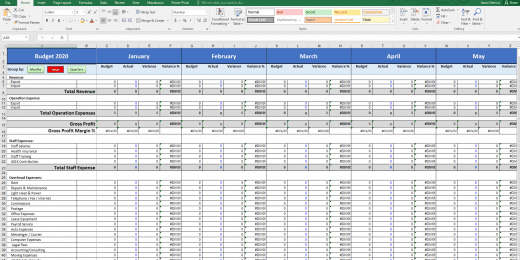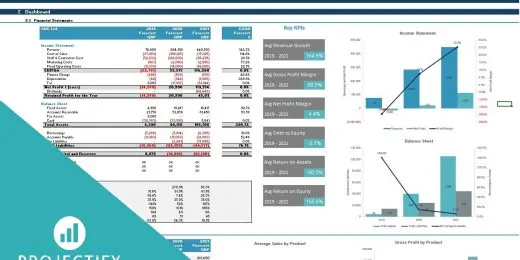Optimize Your Strategy: A Deep Dive into Financial Terms Glossary

Optimize your financial strategy by mastering key terms with our comprehensive Financial Terms Glossary. Unlock the language of finance to make informed decisions and enhance your financial literacy.
Understanding the complex language of finance is crucial for investors, professionals, and students alike. Our Financial Terms Glossary breaks down intricate jargon into accessible language, empowering you to confidently navigate the world of economics and investment. With clear definitions and examples, this resource is tailored to help you grasp financial concepts and principles, ensuring you are equipped to plan effectively, analyze opportunities, and engage in discussions about finance with greater ease.
Whether you’re drafting a business plan, studying for an exam, or simply looking to expand your understanding, our glossary demystifies the vocabulary that often makes finance seem daunting.
Decoding The Language Of Finance
Understanding finance can feel like learning a new language. Key terms and concepts often appear confusing. Let’s simplify and understand this language together. This means business runs smoother and investments grow wiser.
The Financial Lexicon: Vocabulary That Drives Business
Business success hinges on understanding its language. Here’s a primer on the essential terms:
- Assets: Valuable items a company owns.
- Liabilities: Debts or obligations to be paid.
- Equity: Ownership value after liabilities are cleared.
- Revenue: Money earned before expenses.
- Profit: Revenue minus expenses. The bottom line.
These terms are the building blocks of financial statements. They help track a company’s performance. Clear understanding leads to smarter decisions.
Financial Jargon: Removing The Mystique
Some financial terms sound complex. They’re simpler once explained. Here are a few:
| Term | Definition |
|---|---|
| Bonds | Loans from investors to entities. Safe investment. |
| Capital Gains | Profit from selling an asset. Extra money. |
| Diversification | Spreading investments to reduce risk. |
| Liquidity | How quickly an asset turns into cash. Fast access to money. |
| Volatility | Rapid price changes in markets. Price goes up and down. |
Understanding these terms removes uncertainty. It puts everyone on the same page. Smart finance talk leads to growth and success.
Navigating Financial Statements
Understanding financial statements is crucial for any business strategy. These documents tell a story. A story of a company’s financial health. Like any good story, you need to grasp its language. Let’s break down the jargon. Make sense of the numbers. And optimize your financial strategy.
Balance Sheet Breakdown: Assets And Liabilities
The balance sheet shows a company’s worth at a point in time. Think of it as a snapshot. A snapshot of what a business owns and owes.
- Assets are what a company owns. They can be:
- Cash in the bank
- Inventory
- Property
- Liabilities are what a company owes. They include:
- Loans
- Credit card debts
- Mortgages
Add up all the assets. Then, subtract the liabilities. This will give you the equity. Equity is the true value of a company.
Income Statement Insights: Revenue And Expenses
The income statement tells us how much money a company made. It also tells us what it spent over a period.
| Revenue | Expenses |
|---|---|
| Sales of goods or services | Cost of goods sold (COGS) |
| Investment income | Operating expenses |
Subtract the expenses from the revenue. The result is the net income. A positive net income means profits. A negative one means losses.
Investment Terminology
Starting your investment journey feels like diving into uncharted waters. Grasping the language is key. Let’s break down the complex jargon. We’ll make it simple.
Investment terms can confuse anyone. Together, we decode this language. We start with stocks, move to bonds, and nail critical concepts. Ready? Let’s jump in!
Stock Market Lingo: Bulls, Bears, And Dividends
The stock market has its own dialect. Understand it, and it’s less daunting. We will explore three terms that dominate stock discussions daily.
- Bulls: These folks see the glass half full. They bet on stocks climbing high. A ‘bull market’ means prices are on the rise. Everyone’s grinning.
- Bears: The pesky pessimists. Bears believe prices will fall. A ‘bear market’ signals decline. It’s not all bad; savvy investors find opportunities.
- Dividends: Your slice of the profit pie. Companies distribute earnings through dividends. Hold their stock, get paid. It’s as good as it sounds.
Bond Basics: Yield, Maturity, And Ratings
Bonds are akin to IOUs with benefits. Governments or companies issue them. Let’s demystify three cornerstones of bond-speak.
| Term | Definition |
|---|---|
| Yield | The expected paycheck from bond investments. It combines price and interest. |
| Maturity | That’s when the bond celebrates its birthday and pays back your loan. |
| Ratings | Credit scores for bonds. ‘AAA’ is top-notch. Below ‘BBB’ is riskier terrain. |
Knowing these terms, you’re better equipped to sail the investment seas. Each word is a wave you now ride with confidence.
Banking Slang Unveiled
Welcome to the treasure trove of banking jargon where we unfold the complex world of financial terms!
Peeling back the layers of banking lingo exposes the crucial digits and deals that shape your finances.
Interest Rates And Apr: The Cost Of Money
Grasping concepts like interest rates and APR can save you heaps of cash.
- Interest rates represent the price you pay to borrow money.
- APR or Annual Percentage Rate includes interest plus other charges.
Tax Talk: Key Concepts
Getting to grips with taxes can feel overwhelming. Yet, it’s vital for financial savvy. With a glossary of tax terms, you’ll find clarity. Dive into essential tax lingo and make better choices with your money. Here we will cover critical concepts that affect your wallet.
Understanding Tax Brackets And Deductions
Tax brackets show how much tax you pay on your income. The more you earn, the higher your tax bracket. Taxes get tricky with each dollar taxed differently. Let’s simplify it:
More rows as necessary
| Income Range | Tax Rate |
|---|---|
| $0 – $9,875 | 10% |
| $9,876 – $40,125 | 12% |
| $40,126 – $85,525 | 22% |
| $85,526 – $163,300 | 24% |
Deductions lower taxable income. They are expenses the IRS lets you subtract. Think of charity donations or mortgage interest. Understand your deductions to maximize your savings.
- Standard Deduction: a flat amount the IRS allows to reduce your taxable income.
- Itemized Deductions: a list of eligible expenses you can use to lower your tax bill.
Estate And Gift Taxes: Planning For The Future
Plan ahead with estate and gift taxes. These taxes apply when you give assets. They ensure taxes get paid when wealth changes hands.
Estate taxes apply when someone inherits your assets after you pass away. There are federal estate taxes and sometimes state taxes. They rely on the value of the estate.
Gift taxes may apply when you give money or property during your lifetime. There are annual limits on how much you can give tax-free. It’s crucial to know these limits:
- The annual gift tax exclusion amount
- Lifetime estate and gift tax exemption
Remember, certain gifts are always tax-free. Tuition or medical expenses you pay for others fall into this category, but planning is key to avoiding a hefty tax bill.
Corporate Finance And Funding
Understanding corporate finance and funding is like unlocking a treasure chest. It’s key to a company’s success. This section lights the path to this treasure. We dive into capital structure and why knowing the mix of equity and debt is vital. Then, we explore venture capital and angel investors, critical for startups. Get ready to expand your financial knowledge!
Capital Structure: Equity And Debt Financing
Capital structure is a mix of a company’s finances. Think of it as a cake recipe. The ingredients? Equity and debt. Companies need the right balance to thrive. Equity means ownership. Shareholders own part of the company. Debt? It’s like a loan. Companies borrow money and pay it back with interest.
| Equity Financing | Debt Financing |
|---|---|
| No repayments | Regular repayments |
| Dilutes ownership | Retains full ownership |
| Profit sharing | Interest costs |
A solid capital structure boosts a company’s value. It makes investors happy. It shows strength in the market. Companies play a balancing act with equity and debt. Too much debt? Risky. Too much equity? Owners give up more control. The perfect blend supports growth and stability.
Venture Capital And Angel Investors: Fueling Growth
Startups often need a cash kickstart. This is where venture capital (VC) and angel investors step in. They are the fuel for growth. VCs are big players. They invest hefty sums in promising companies. They take a share of the business in return. Angel investors are like fairy godparents. They are wealthy individuals looking to invest in the next big thing.
- VCs often provide:
- Large investments
- Guidance and connections
- Higher stakes in the company
- Angel investors are known for:
- Smaller, more personal investments
- One-to-one mentorship
- Taking risks on early-stage companies
Startups can soar with the right investor. VCs and angels bring more than money. They bring wisdom, networks, and resources. They also share risks, making them valuable partners. Funding from these sources can make dreams into reality.
International Finance Jargon
Welcome to the world of International Finance, where each term plays a crucial role in understanding global markets. With borders dissolving financially, a strong grasp of this specialized vocabulary is essential. Let’s break down some key terms related to currency trading and cross-border transactions. Mastering these will give you an edge in the complex world of international finance.
Exchange Rates And Forex: Currency Trading
The foundation of international trade lies within the realm of currency trading. This is paramount in determining how much one currency is worth in another. Major terms include:
- Spot Rate: The price to exchange currencies right now.
- Forward Rate: Agreed price for future exchange.
- Bid/Ask Spread: Difference between buying and selling price.
Participants join the Forex market to either hedge risks or profit from currency movements. Large volumes are traded daily, making it a highly liquid market.
Cross-border Transactions: Risks And Rewards
Engaging in transactions across nations can be lucrative yet risky. Key terms include:
| Term | Definition |
|---|---|
| Exchange Rate Risk | Currency value changes affecting returns. |
| Political Risk | Changes in government affecting transactions. |
| Settlement Risk | Failure to deliver a transaction on time. |
Rewards of such ventures include market expansion, diversified portfolios, and cost efficiencies. Understanding these risks and rewards is vital for successful international dealings.
Emerging Financial Technologies
The finance world is changing rapidly. New technologies transform how we manage money. Understanding these advances helps you optimize your financial strategy. Let’s explore two critical areas: cryptocurrencies and fintech innovations.
Cryptocurrency Terms: Bitcoin, Blockchain, And Altcoins
Bitcoin kicked off the crypto revolution. It’s a digital currency, used worldwide. Bitcoin transactions are secure, fast, and without a middleman.
Blockchain is the tech behind Bitcoin. It’s a digital ledger. All transactions get recorded here. It’s like a chain of data blocks, hence the name.
Altcoins are ‘alternative coins’ to Bitcoin. There are thousands. Each operates on its tech and principles. Examples include Ethereum and Ripple.
Fintech Innovations: Mobile Payments And Peer-to-peer Lending
Let’s talk mobile payments. Your phone becomes your wallet. Tap to pay in stores or send money online. Popular apps include PayPal and Venmo.
Peer-to-peer lending connects borrowers with lenders directly. It skips traditional banks. Platforms like LendingClub and Prosper are leaders here.
- Fast, easy loans
- Accessible to more people
- Rates often better than banks
Financial Planning And Personal Finance
Understanding money is key to a bright financial future. We dive deep into financial planning and personal finance. This helps you manage money wisely. You will learn how to save, invest, and protect your wealth.
Retirement Savings And Pensions: Preparing For The Long Term
Retirement savings mean setting money aside for the future. Pensions are retirement plans from an employer. Both are important for a secure retirement. Knowing these terms helps you make the best choices.
- 401(k): A retirement savings plan offered by employers in the USA.
- IRA: Individual Retirement Account for personal savings with tax benefits.
- Defined Benefit Plan: A pension where the employer guarantees a set payout at retirement.
- Annuity: A financial product that pays out a steady income in retirement.
Insurance Terms: Protecting Your Financial Health
Insurance safeguards against major financial losses. Learn terms to pick the right coverage. It’s vital for financial peace of mind.
| Term | Definition |
|---|---|
| Premium | The amount you pay for your insurance policy. |
| Deductible | Money paid out of pocket before your insurance covers the rest. |
| Beneficiary | Person who receives money if the insurance holder passes away. |
| Claim | A request for payment when something insured is damaged or lost. |
The Regulatory Landscape
The Regulatory Landscape shapes the world of finance significantly. This complex maze of rules demands businesses to stay alert. It helps protect investors and ensures the market’s integrity. This deep dive will clarify key regulations. It ensures your financial strategy aligns with current laws.
Understanding Compliance: Sarbanes-oxley To Dodd-frank
The Sarbanes-Oxley Act (SOX), sets strict standards for public companies. It fights corporate fraud. SOX requires accurate financial reporting. CEOs and CFOs must verify their company’s financial statements.
- Enhanced financial disclosures
- Criminal and civil penalties for violations
- Certification of internal auditing checks
The Dodd-Frank Act aims to prevent another financial crisis. It increases transparency. The Act creates watchdog agencies. Consumer protection rises in the financial services industry.
- Volcker Rule to restrict banks from making certain investments
- New oversight council to monitor systemic risk
- Whistleblower program to reward reporting of violations
International Regulations: Basel Iii And Mifid
Basel III is a global, voluntary framework. It addresses banks’ resilience. The rules focus on risk management and bank capital requirements. It ensures banks can withstand financial stress.
- Higher capital ratios
- More stringent risk assessments
- Improved bank liquidity provisions
The Markets in Financial Instruments Directive (MiFID) affects European Union markets. It opens competition for trading services. MiFID emphasizes transparent pricing. It improves investor protections.
- Defines codes of conduct for investment services
- Sets out operational requirements for trading
- Focuses on non-discriminatory access to trading venues
Frequently Asked Questions
What Is A Financial Terms Glossary?
A financial terms glossary is a resource that lists key finance-related terms and their definitions. It serves as a handy reference for professionals, students, or anyone looking to understand complex financial concepts and jargon.
Why Is A Financial Glossary Important?
A financial glossary is crucial for clarity in finance-related discussions. It ensures that all parties understand the terminology used, leading to more effective communication and decision-making in financial matters.
How Can I Learn Financial Lingo Quickly?
To learn financial lingo quickly, regularly read financial news, use online glossaries, and engage with industry literature. Practicing with flashcards and financial quizzes can also reinforce your understanding of key terms.
What Are The Basics Of Financial Literacy?
Financial literacy involves understanding key concepts such as budgeting, investing, borrowing, taxation, and retirement planning. Mastery of these basics allows individuals to make informed financial decisions confidently.
Conclusion
Navigating financial landscapes gets easier with the right vocabulary. Our in-depth glossary empowers you to grasp complex concepts and communicate with confidence. Remember, mastering these terms is not just about knowledge—it’s about building the foundation for financial success. Take this glossary as your first step towards a clearer financial future.



















































